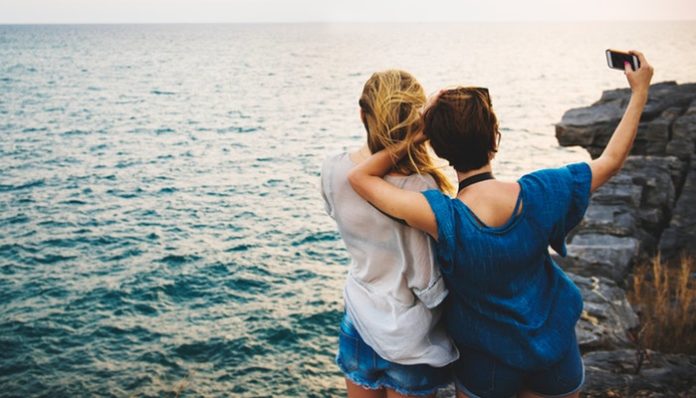
My best friend and I have only ever taken one photo together.
Our friendship just doesn’t live online. She’s not the first one to like or comment on all of my posts. We don’t make long, public proclamations of our admiration for each other. We don’t text 24/7, either. In fact, sometimes, when life gets the best of us, we both go completely silent online. (She hasn’t even checked Facebook since we met. Just kidding.)
Still, our friendship is one of the strongest I have ever had. I know that I can call my best friend if I really need someone. She will let me stay with her whenever I feel lonely and overwhelmed. My best friend lets me be my authentic self in a way I previously couldn’t in friendships. I trust our friendship for what it is, not what social media tries to convince me it’s not. My best friend and I spend more time actually being friends than trying to prove to social media that we are.
I never realized it before, but that is an empowering mindset to hold on to.
Don’t get me wrong: I have huge anxieties about social media and friendship. Somehow I have developed an irrational fear that if there’s too much “blue” on the screen – which means that that I’ve “over-texted” – our friendship will end. It’s irrational, now that I think about it, but it is difficult to convince myself of that when it has been true in the past.
I’ve had friendships fall apart over text, which, looking back, I can’t wrap my brain around. How can a few typed words change everything within a relationship?
Even though we have five senses, we barely use them in our day to day interactions. These days, we “experience” almost everything behind a screen. So many of my memories aren’t actually memories at all… they’re text messages. When I think about some of my friendships, text messages are the primary visual accompanying those memories.
Isn’t that scary?
Being close friends with someone who rarely uses social media – and who values our in-person relationship over what happens behind a screen – has truly transformed my perspective on friendships in the digital age. It has challenged my anxieties and forced me to slow down, breathe, and realize that my best friend and I more than OK, even when we aren’t in constant contact.
We share memories of beach days, coffee dates, and simply hanging out and talking. That text message from Saturday, September 9th at 2:11pm or that month-long Snapchat streak, by contrast, don’t define our friendship. In fact, we have no pictures to back up our memories, but I remember our good times more vividly than anything I have ever recorded on social media.
Ultimately, my friendship with my best friend has taught me that the strength of a friendship has nothing to do with the amount of memes a person tags you in, the number of “appreciation posts” they make, or the number of times they leave you on “read.”
If that’s where your sense of security in a relationship (or lack thereof) currently comes from, it’s time to self-reflect. Friendship is about unconditional love and acceptance, and true friends are the people who can handle you when you are completely unfiltered… in real life.
Think about it: If a friendship really ends over the amount of words on a screen, how strong could that friendship have been to begin with? We need to stop buying into the perceived significance of social media in our friendships.
What I’m about to say is going to sound incredibly cliché, but we really need to start talking about the importance of not evaluating our friendships off of what happens (or doesn’t) on social media, because this mindset affects us more than we realize. We live in a society where we expect constant communication with – and attention from – others. In our world, every action can be misconstrued, double-texting is labeled as “too clingy”, no texting at all is seen as “not caring,” and every second of every day is recorded on Snapchat. It’s a world where we don’t even know why we place so much value on social media behaviors, but we feel like we have to anyway.
We can’t immediately overcome the ways we have been conditioned by the digital age overnight, and I won’t pretend to have the answers.
After I write this article, I’ll post it on my social media platforms, which feels hypocritical, but it’s simply an aspect of the world we live in. I can’t control how our society uses social media, but it comes with some benefits, such as getting to connect with the people I love regularly.
I don’t know what the future holds for social media or my friendships, but for now, all I can do is wake up every day, work on my relationship with myself, and hope that the digital world affects me a little less than it did the day before. In many ways, I’m thankful for social media. It’s a tool that allows me to connect with the people in my life, but it doesn’t hold together my friendships. I refuse to fall prey to that illusion.
Originally Published on Her Campus
Feature Image by rawpixel.com from Pexels


















